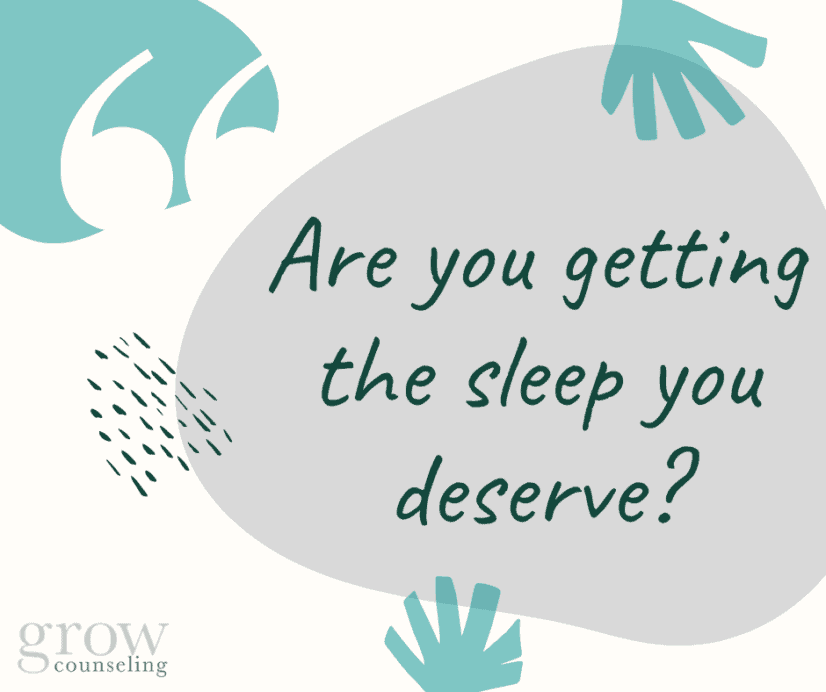Recently, I have had multiple people in and outside of my office who have expressed their difficulty with sleep. It is recommended by medical professionals that adults need at least 7 to 9 hours of sleep per night. Losing sleep can have a significant impact on one’s mental health.
Therefore, choosing to prioritize your sleep is vital to your health, especially in a culture that overemphasizes the value of work.
Here are some tips to consider when making sure you are getting the proper sleep hygiene:
Set a schedule. Just like kids, adults sleep better when they have a bedtime routine. Doing the same thing before bed each night can help prepare your body for rest and condition your brain for sleep. Stick to activities that promote relaxation such as gentle stretching, journaling, reading, prayer, or meditation. I often encourage people to find a soothing scented lotion or room spray to use prior to bed with calming scents such as lavender.
Don’t force yourself to sleep. If you haven’t fallen asleep after 20 minutes, get up and do something calming. Read a book, draw, or write in a journal. Avoid computer, TV, and phone screens, or anything else that’s stimulating, and could lead to becoming more awake at least an hour before going to sleep.
Avoid caffeine, alcohol, and nicotine. Consuming caffeine, alcohol, and nicotine can affect your ability to fall asleep and the quality of your sleep, even if they’re used earlier in the day. Remember, caffeine can stay in your body for up to 12 hours, and even decaf coffee has some caffeine!
Avoid napping. Napping during the day will make sleep more difficult at night. Naps that are over an hour long, or those that are later in the day, are especially harmful to sleep hygiene.
Use your bed only for sleep. If your body learns to associate your bed with sleep, you’ll start to feel tired as soon as you lie down. Using your phone, watching TV, or doing other waking activities in bed can have the opposite effect, causing you to become more alert.
Exercise and eat well. A healthy diet and exercise can lead to better sleep. However, avoid strenuous exercise and big meals for 2 hours before going to bed.
Sleep in a comfortable environment. Since we spend about a third of our lives asleep, it’s worthwhile to invest in bedding that is comfortable. Before climbing into bed, try lowering your thermostat a few degrees. Your core temperature drops during rest, and keeping your room on the chilly side will aid in this natural temperature drop. It’s important to sleep in an area that’s adequately quiet, comfortable, and dark.
Minimize light and sound. These two environmental factors can impact both your quality and quantity of sleep. Darkness causes your brain to release melatonin for a calming, sleepy effect. As a result, it’s important to minimize your exposure to light before bedtime. The blue light from our digital devices prevents our bodies ability to produce the appropriate amounts of melatonin needed for sleep. Many have found it helpful to use blue light glasses while using electronics to also prevent eye strain. Try using an eye mask, ear plugs, fans, or white noise if necessary to block out unwanted noises.
Written by: Betty Gebhardt
Check out this helpful article from Sleep Advisor, which goes into detail about how much sleep we need at different ages!

